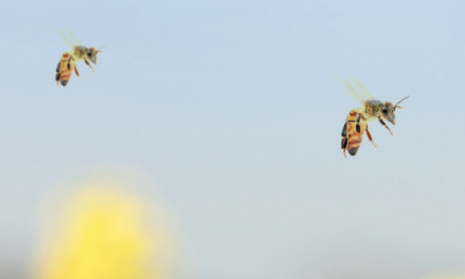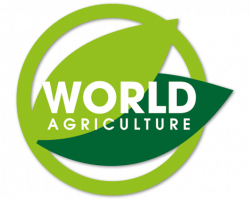Truth about Organic Foods

Truth About Organic Foods’ (2006) by Alex Avery. Henderson Communications LLC, Chesterfield. (ISBN-13: 978-0-9788952-0-4). Available from Jonathon Harrington, Optima Excel, Pen-y-Lan, Tregoed, Brecon, Powys, LD3 0SS, UK.
It is not our normal practice to publish more than one review of a book, but this book has been the subject of much controversy, so we considered it right to put forward alternative opinions on the text.
Moreover, we are focussing on the "organic" debate in this Issue.
This debate should allow the readers of World Agriculture to reach a considered and valid judgement of the position of “organic” agriculture and “organic” foods in global production. Ed.
At a time of growing concerns about availability and the increasing cost of food in many parts of the world, it is particularly interesting to reflect on Alex Avery’s perspectives in ‘The Truth About Organic Foods’.
He sets out, by his own admission, to debunk ‘organic myths’ surrounding organic farming, organic foods and the ‘organic’ movement more generally.
Claims and counter-claims are examined rigorously in a comprehensive analysis in reaching his, often brave, conclusions. Commendable efforts have clearly been put into background research in reaching the judgements made.
The language used is sometimes robust, from an author who clearly does not suffer organic enthusiasts lightly, and readers are left with the distinct impression of little love lost as Mr Avery sets about demolishing various beliefs (preciously) held by the organic movement.
To his credit, however, the author has pursued a careful scientific approach to his study – and the conclusions reached are clearly explained throughout.
The text is peppered with quotations; case studies; separate box comments with various figures and photographs as illustrations, which can enliven and provide much interest.
From a somewhat critical start Mr Avery becomes slightly more generous later in the book recognising (in his own words) that ‘many organic farmers are excellent farmers and get good yields from their crops’ (p.162).
He also says (p.148) ‘Organic foods can be better (than conventional). There is no question about that. In fact, my wife and I [...] regularly buy organic bread from our local food supermarket. [...]
Why? Because it is simply the best bread in the store’ – included in the aptly named Chapter 8 ‘If It’s Better, Buy It!’
However, the author rightly highlights, in protecting consumers right to buy organic food, that it remains particularly important to challenge inaccurate promotional statements which can be proved to be scientifically incorrect.
The author rightly asks important questions about many of the organic industry claims.
Most readers would, I suspect, enjoy the early part of the book on how the organic movement got started – which makes for a highly informative first chapter.
For me, as an agricultural scientist who has worked on both organic and conventional farms, the gem remains Chapter 9 of ‘A Few Bushels Shy’.
It provides a well researched and clear account of the poorer field performance of organic crops.
Anyone who has farmed organically will understand the need to build fertility through legume- rotations and organic manure-use to secure reasonable productivity on most soils, and then recognise that the crop output will invariably be lower, relative to a comparable conventional crop receiving fertiliser and agrochemical inputs.
Comparisons are detailed, in the book, of where organic crops yield 10% to 80% lower than conventional production systems.
I would add the ‘Organic Farming Versus Wildlife Habitat’ chapter to my choice, where coverage of the so- called Bichel Committee Report (p.208) is well worth inclusion (in my view).
The Bichel study, into whether Denmark could feed itself organically in the future, concluded that human food production could drop by around 47% - and potato production by as much as a possible 80% - in an organic Denmark.
Not something anyone would wish to contemplate seriously in times of food security concerns. As others have also concluded, it is very unlikely that organic farming could feed the world in the face of our ever-growing population demand.
Comments by the author on disrupting the ‘balance of nature’ in conventional farming (Chapter 10) are less persuasive.
There are well documented examples of where the dynamic equilibrium has been seriously destabilised, especially with pest and disease problems, which have been exacerbated and made more difficult to control in certain crops by some modern agricultural practices – through pesticide treatments in particular.
Hence the increasing enthusiasm for greater integrated pest management (IPM) approaches in crop protection more generally. An approach persuasively promoted in the UK by LEAF supporters.
Not everybody would agree, either, with some of the comments in the chapter on ‘Dismantling Capitalism...’ where the author draws parallels between the organic movement and communist ideals, that some may perhaps consider rather intemperate.
Mr Avery’s wrath is mostly reserved, however, for negative ‘organic’ attitudes and comments about agricultural biotechnology.
He concludes that this extreme intolerance towards biotechnology adoption in organic agriculture must be grounded in a fear of competition – as a major threat to the future of organics.
He may well be right, in this regard, and the cases clearly presented in support of his arguments are highly persuasive. The rejection of modern biotechnology is difficult to understand, otherwise, in circumstances where clear environmental and productivity benefits can be demonstrated.
The many excellent quotations in the book, for one side or the other in this on-going polarised debate, probably say it all. He quotes, for example, Lord John Krebs during his time as Chairman of the UK government’s Food Standards Agency who reportedly said ‘organic food is an important addition to consumer choice – but no independent scientific evaluation has ever shown that it is any healthier.
Organic consumers are not getting value for money, in my opinion, if they think they are buying food with any extra nutritional quality or extra safety.’
It still has to be recognised, of course, that organic food production remains a significant part of the food industry, and a growing sector in some countries, popular with very many consumers.
The last word should perhaps be left to the late Norman Borlaug, the eminent Nobel Laureate and ‘father of the Green Revolution’, who is reported to have said ‘if people want to believe that organic food has better nutritive value, it’s up to them to make that foolish decision.
If consumers really believe that it’s better from the point of view of their health, God bless them. Let them buy it. Let them pay a bit more. It’s a free society.’
Mr Avery concludes, quite appropriately, that the organic community has the right to continue to farm and market organic products to all those customers who wish to enjoy organic foods, and that it should remain ‘ live and let live ’.
He goes on to say ‘there is room for organic farmers, conventional and biotech farmers to farm peaceably on this planet’ – and many will feel the same.
An interesting read – and, as it should be with this continuing debate, entertaining and suitably provocative in parts.
Professor Paul Davies, Royal Agricultural College
Alex Avery's controversial The Truth About Organic Foods begins by reminding us that the roots of organic agriculture are deeply embedded in occult and Romantic mysticism.
Rudolf Steiner ("When I eat roots, their minerals go up into my head. When I eat salad greens, their forces go to my chest, lungs and heart-not their fats, but the forces from their fats.") and J.I. Rodale ("Old farmers who remember how their grandfathers grew crops...will tell you of the fine crops and very little plant and animal disease and insect depredation.") are the best- known organic pioneers of the 20th century, but modern consumers have driven the double-digit growth of the industry in recent years with more pragmatic concerns about chemical pesticides on the conventional farm and preservatives in processed food.
Today's organic industry attracts its chemophobic clientele with bucolic images of fresh, nutritious foods devoid of chemicals, grown on small farms in an environmentally sustainable manner by local organic farmers.
We are whisked back to a gentler time when life was good and foods were entirely natural, with no chemicals, no pesticides, no GMOs, no massive corporate farms and no multinational retailers.
After this quick history of the organic philosophy, Avery proceeds to attack the popular beliefs behind its commercial success.
Consumers buy organic foods because they believe them to be healthier, tastier, lacking in pesticides, and better for the environment and for local family farms.
All of these may be valid and honourable reasons for choosing a particular food and lifestyle, but according to Avery, they do not apply to the current organic industry.
Avery challenges the common claims in chapter after chapter. Is organic food more nutritious? Is organic healthier? Is organic safer? Does organic means pesticide free? Are approved organic pesticides benign? Does organic food taste better? Does buying organic support local family farmers? Is organic farming better for the environment?
Avery documents (and cites comprehensively) the independent scientific studies addressing these questions and concludes there is no scientifically credible evidence to support organic foods or farms being categorically superior to conventional in any respect. Organic does not mean 'no pesticides', because organic farming does allow certain 'natural' pesticides.
And 'natural' does not mean 'healthy' or even 'benign', as those natural organic pesticides can be very hazardous, even more so than the proscribed synthetic chemicals.
Even if one discounts Avery due to his personal bias, it is hard not to accept the apparent consensus of the scientific studies showing, for example, no categorical or meaningful nutritional differences between organic and regular foods.
The book's final chapter is devoted to biotech. Avery focuses on a curious paradox: some biotech crops are demonstrably beneficial for the environment, including those offering improved disease or pest resistance with reduced chemical inputs, or better weed control without resorting to tillage, a major cause of soil erosion and practiced most intensively by organic farmers.
Biotech farmers have documented benefits to sustainable production, and many organic farmers want to obtain them also.
Clearly, appropriate applications of biotech help fulfill the organic dream of environmentally sustainable agricultural systems, and biotech would welcome organic farmers.
But instead of embracing and encouraging biotech, organic leaders have expressed their unrequited enmity for biotech by forbidding organic farmers from growing biotech crops and calling for a ban on the new technology altogether.
They have even imposed zero tolerance for 'contamination', allowing not a single biotech pollen grain in organic crops.
This intolerance is especially illogical considering other forbidden 'contaminants', including synthetic pesticides, are permitted under a reasonable 5% threshold.
Perhaps organic leaders thought proscribing biotech would dissuade farmers from adopting the new technology, but with worldwide biotech crops now well established organic farmers are painted into a non-sustainable corner by the intemperate decisions of their own leaders.
So why did the leaders choose this impracticable zero standard for biotech when even known toxins like arsenic are permitted at low levels?
The usual reply is the organic philosophical opposition to human intervention in nature's realm, an intervention upon which biotech is founded.
But this explanation is unsatisfactory; the organic philosophy has no such aversion to other unnatural human interventions in breeding, such as the use of irradiation or chemical mutagenesis to create crops grown by organic and other farmers.
Avery offers a more sanguine explanation: the adamant opposition to biotech is because of competition. "Biotechnology," he says, "offers a more cost-effective way to achieve lower pesticide use and more eco- friendly farming systems ... biotechnology represents a direct threat to organic agriculture's current monopoly on eco-conscious consumers."
Dr Alan McHughen BSc, Dphil
Download pdf

